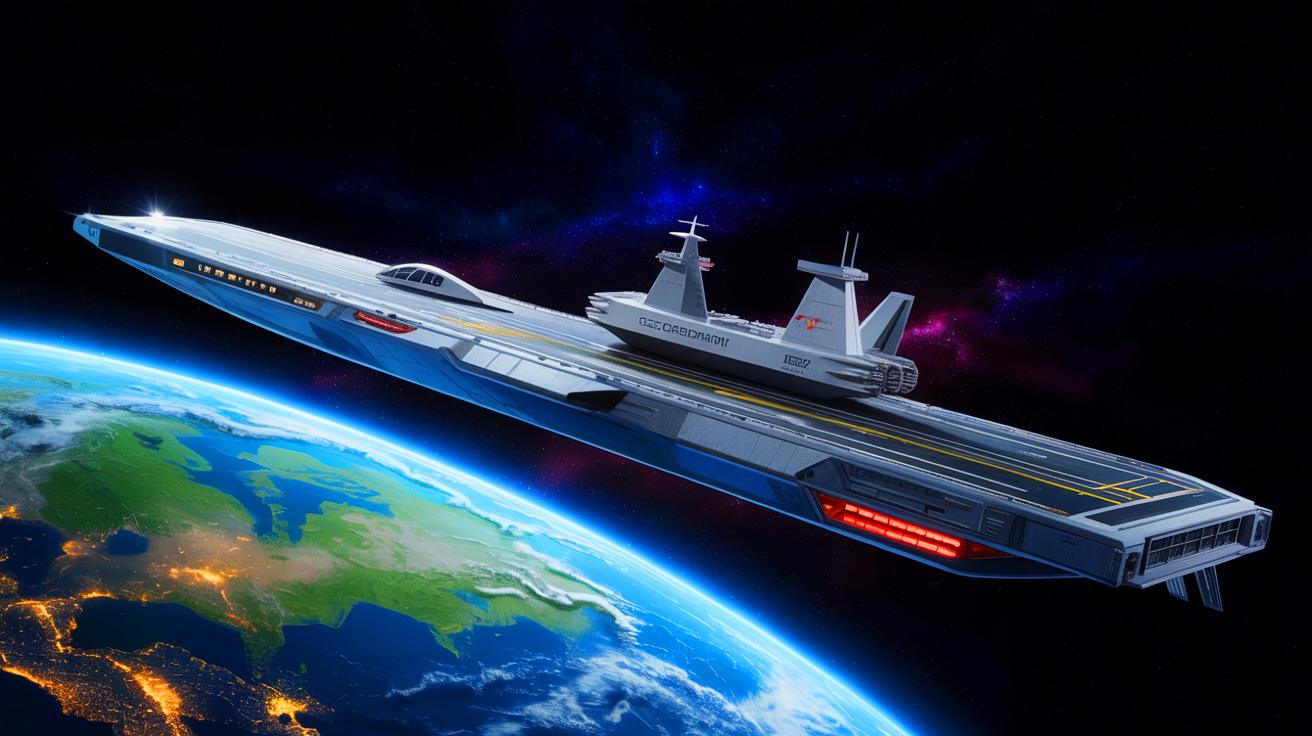IN A NUTSHELL
🚀 The U.S. Space Force collaborates with Gravitics to develop an innovative orbital aircraft carrier for improved satellite deployment.
🔒 This carrier will provide protection for satellites against the harsh space environment, safeguarding sensitive components.
🛰️ The initiative reflects the U.S. strategy to maintain a dominant military presence in space amid an emerging arms race.
🤝 Public-private partnerships are emphasized as crucial for ensuring technological superiority in national defense efforts.
The United States is making significant strides in asserting its dominance in space with a groundbreaking project led by Gravitics. This innovative aerospace startup is developing an orbital aircraft carrier for the U.S. Space Force, a move that underscores the strategic importance of space in national defense. This initiative highlights a shift towards public-private partnerships in military operations, as private enterprises play an increasingly critical role. As global tensions rise, this project not only aims to bolster U.S. military capabilities but also reflects a broader strategy to maintain technological superiority in an emerging space race.
The Orbital Aircraft Carrier: A Strategic Innovation
Gravitics has been awarded a $60 million contract by the U.S. Space Force to develop an orbital aircraft carrier. This revolutionary platform is poised to transform satellite deployment by enabling launches directly from Earth’s orbit. This capability allows for a more rapid and efficient response to national security threats compared to traditional rocket launches. The orbital carrier enhances the military’s operational agility, offering a strategic advantage in space.
The development of this carrier comes at a time when the specter of a “space arms race” is increasingly prominent. By having a pre-positioned platform in orbit, the U.S. can deploy satellites swiftly based on strategic needs, addressing current security challenges. This innovation solidifies the United States’ leadership in space technology, reinforcing its position in an area of growing global competition.
The Quest for Space Superiority
The orbital aircraft carrier will house satellites in an unpressurized environment, shielding them from the harsh conditions of space. This protective feature is crucial in an era where electronic warfare and cyber threats are prevalent. The carrier’s ability to safeguard sensitive electronic components ensures the operational integrity of satellites, a vital aspect of maintaining space superiority.
Moreover, the orbital carrier offers a strategic advantage by potentially concealing satellites from adversaries, enhancing operational security. Colin Doughan, CEO of Gravitics, describes the carrier as a “game-changer,” serving as a pre-positioned launch platform in space. This development aligns with the Space Force’s mission to maintain a dominant orbital presence, further strengthening the U.S.’s strategic capabilities.
Implications for the Space Industry
Beyond the orbital carrier, Gravitics is collaborating with Axiom Space on a pressurized space module, highlighting the company’s expansion into national defense. This diversification underscores Gravitics’s growth trajectory while continuing to offer commercial solutions. The company’s vision aligns with the Department of Defense’s needs, creating new market opportunities and reinforcing the importance of public-private partnerships in the space sector.
Gravitics’s involvement in this project exemplifies the increasing role of private entities in national defense initiatives. By integrating innovative technologies, these companies bolster the United States’ space position and drive the development of new technologies with potential civilian applications. This evolution reflects a broader trend towards collaboration between the government and private enterprises in advancing space capabilities.
Toward a New Space Era
The emergence of technologies like the orbital aircraft carrier signals the dawn of a new era in space exploration and exploitation. This technological leap could redefine security, surveillance, and communication paradigms, transforming military operations and the role of private companies in space. The implications are vast, potentially reshaping the landscape of international space cooperation.
As the Space Force and companies like Gravitics prepare for future challenges, it is essential to consider the impact of these innovations on international relations. How will these advancements influence cooperation between nations? More importantly, how can we ensure that space remains a domain of shared peace and progress for all?
This article is based on verified sources and supported by editorial technologies.
Did you like it? 4.6/5 (27)

